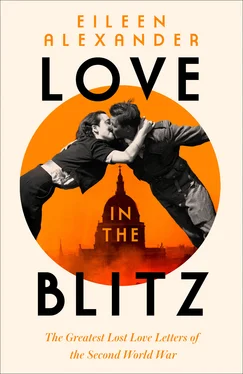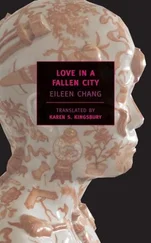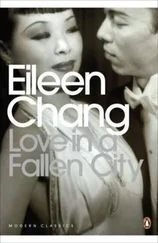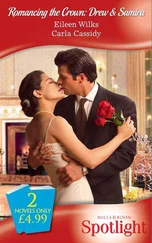The one thing that such historical narratives lack, however personal they are, is ignorance of the future, and so they cannot capture the vividness of living in the present as this book does. This is what makes Eileen Alexander’s letters such an immense literary discovery. It is a description of love as it unfolds, ‘suspended between unborn tomorrow & dead yesterday’, as she wrote in the middle of war, an emotion as it is experienced by a young woman day by day, existing in a moment of history, unique to its time but universal in its meaning.
Historical Introduction by David Crane
On 19 July 1939, as Europe drifted towards war, a short report from the police courts under the mildly sardonic heading ‘DIFFERENT TYPE OF STUDENT HAD SIMILAR SORT OF ACCIDENT’ appeared in the inside pages of the Cambridge Daily News . ‘When a research student at Cambridge University,’ the piece began, ‘was summoned at the Maidenhead Borough Police Court on Monday for alleged dangerous driving and for failing to conform to a “Halt” sign at Braywick cross-roads on June 29th, he said to the magistrates, “I want to persuade you that I am not one of those reckless undergraduates about whom you have heard from time to time. I have already spent four years at Cambridge University, having gained a State Scholarship and two other scholarships and am now beginning my fifth year of study as a research student. During the four years I have been there, I have held various positions of responsibility in the life of the university, and have never come into contact with the Cambridge police or other authorities at all. I am not just a reckless undergraduate, but a research student of four years.”’
‘It was an accident that might happen to anyone,’ he told the court – the car roof was down, the sun was in his eyes, the road unfamiliar – but that was probably not a wise line to take. ‘It was alleged in evidence,’ the report went on, that he had driven over a major junction ‘at colossal speed’, smashed into a car coming from his right on the main Maidenhead to Windsor road, spinning his car over onto the far side of the road twenty-eight feet away and hurling his ‘lady passenger … herself a Cambridge student’ out of the passenger seat and onto the tarmac.
The ‘lady passenger … on her way to London to meet her parents who were coming home from Egypt the next day’ was Eileen Alexander, and the driver – banned from driving for a year, fined £3 and ordered to pay costs – was the Liverpool-born son of devoutly Jewish parents, with a double-first in classics and psychology, called Gershon Ellenbogen, the recipient of these letters. At the time the case came to court Eileen was in Maidenhead hospital, slowly and painfully recovering from her injuries, her nose and collarbone broken, her teeth and left eye-socket damaged, her face bruised and swollen.
If there was one event in her life, however, that Eileen would not have seen undone it was that car crash. She had first met Gershon Ellenbogen in the summer of 1938 but it was the accident that changed their lives, turning a friendship that might have naturally ended with their Cambridge days into the all-consuming love affair celebrated in these letters.
Eileen’s remarkably forgiving letter from her hospital bed, with which this volume opens, was just the first trickle in an unstoppable flood of words that passed between them over the long years of war. At some stage Gershon’s letters to her were either lost or destroyed, but he preserved hers to the end of his life, more than a thousand of them in all, written from air-raid shelters and office desks, on buses and station platforms, in hotel foyers and under hair-dryers, in that minuscule hand of hers that could have damaged stronger eyesights than Gershon’s.
Like the lovers in a poem of Donne’s – a God in her pantheon second only to Shakespeare – Eileen lived through Gershon, happy only when she was writing to him or when a letter from him arrived to obliterate the space between them. In many ways the letters are closer to a diary than love letters, and closer still to an uninhibited and unstoppable stream of consciousness than either – a ‘complete chronicle’ of her life, waking and sleeping, as she put it – with that ‘little room’ of Donne’s lovers that she inhabited, peopled with a wonderful array of characters and incident.
Even were these letters less brilliantly written they would still be of historical interest for the people Eileen knew, from wartime cabinet ministers, financiers, soldiers, philanthropists and art collectors to some of the major figures in the Zionist movement and the future State of Israel. She was lucky to have been part of a very bright Cambridge set, and yet it is just as much the London beyond her friends and family, the London of chance meetings in cinema queues and Lyons Corner Houses, of overheard snatches of conversations in restaurants and shelters – the London of the Blitz – that gives her letters their life and their colour.
These letters – vibrant, intimate, joyous, dark, angry, obsessive, neurotic, generous, scurrilous and very, very funny by turns – can speak for themselves, but something needs to be said of the remarkable woman who wrote them.
Eileen Helen Alexander was born in Cairo on 13 April 1917, the oldest of three children of Vicky Mosseri and Alec Alexander, a much-loved and highly successful South African-born and Cambridge-educated Cairo barrister of impoverished Polish Jewish parents. While it was from her father that Eileen inherited her intellectual rigour and fierce attachment to Cambridge, her Italian Jewish mother’s influence was equally marked. Each summer the Alexanders would escape the Cairo heat for the Highlands of Scotland and London’s Mayfair Hotel, but it was as ‘a poor little rich girl’, surrounded by the uncles, aunts and cousins of her mother’s sprawling, immensely wealthy, and interrelated Mosseri family that she spent her cosseted and unhappy childhood. ‘I think I should inform you that she is a very brilliant daughter of a very brilliant father,’ Eileen’s headmaster at the Cairo English School began a letter in support of her application to Girton in the summer of 1934 – a reference that tellingly says more about her parents than it does Eileen:
Mr Alexander is a Jew and Mrs Alexander is a member of the Mosseri family, one of the principal Jewish families in Central Europe and the Near East. She also is a woman of very great ability and the widest education … Mrs Alexander is extremely particular, not to say old-fashioned, in the upbringing of her daughter and until the time comes for her to go to Cambridge she would, I know, hesitate to send her to England alone or leave her there after her own departure … Eileen, herself … hopes to be called to the Bar and it is her ambition eventually to enter Parliament.
If ever one heard the voice and ambitions of the parent rather than the child it is in that last sentence, but if Alec Alexander had already mapped out the future for his daughter, Eileen had other ideas. When ‘I was about sixteen,’ she wrote later,
my father hauled me off to Cambridge to see the Mistress & the Director of Studies in Law (I knew I was going to read English but Dad refused to believe anything so revolutionary – so, in spite of my protests, he arranged that I should be interviewed as a prospective law-student). It was a grilling day in August, I remember. I dressed very carefully in my best clothes to give myself confidence. (I was very frightened) Dad took one look at me & said that he wasn’t going to be a party to the prejudicing of my chances – by letting me appear before women of High Living & Thinking, with short-sleeves (it was, as I have said before, a grilling day in August) and looking as though I were an associate of the doubtful revels of Brighter Mayfair. He ransacked my wardrobe, while I stood by, crying – and drew forth a knitted jersey which I kept for fishing in Scotland – a very old skirt and a pair of hearty shoes – and said ‘wear those’. I did – and cried all the way to Cambridge … We had an uneventful interview with the Mistress – but I recovered my self-respect with the D of S in Law. She and Dad were obviously twin souls. They discussed highly technical points of International Law for a long time – while I sat languidly staring out of the window. Then she turned to me & asked where my particular interest in the Law lay … I said – nowhere – I was going to read English. She drew herself up to her full height, turned a cold eye on my father & asked him why we were seeing her if that was the position. He had nothing to say in answer to that & we withdrew hastily.
Читать дальше












